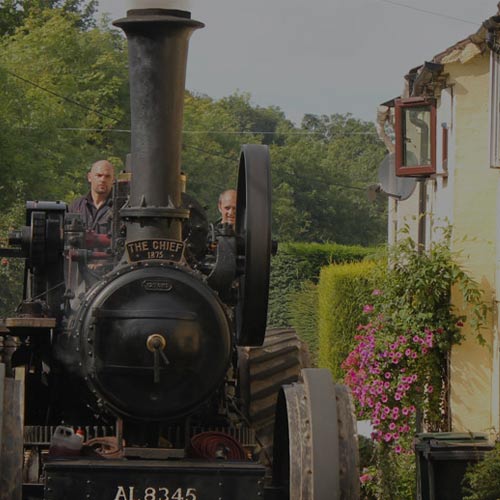The History
Information on the history of BeckburyHistory
Beckbury exists because of a combination of circumstances in prehistory, following the draining of Lake Lapworth through the breach in the Severn Gorge, fertile ground was exposed which supported fauna and flora along with a reliable supply of water, a defensible promontory and sandstone cliffs that could be used as safe dwellings. Somewhere an extending family could survive was created, Beoccasburgh. The locality yielded wealth and Normans taxed it; the Doomsday Book records taxes resulting from surplus wealth under the ownership of Gilbert de Venables (1086) and Roger de Montgomery.
Beckbury Church
 The Church was originally established in the 13th century and was dedicated to St Milburga in 1740. Beckbury Hall and the Lower Hall are the oldest houses in the village, both 16th or early 17th century, Poacher’s Moon (previously Cheriton Cottage) and Church Farm are also 17th century. The Seven Stars pub was opened in 1846 and the Beckbury National School was built in 1852 by the then owner of Beckbury Hall and then later passed to the management of the Church of England.
The Church was originally established in the 13th century and was dedicated to St Milburga in 1740. Beckbury Hall and the Lower Hall are the oldest houses in the village, both 16th or early 17th century, Poacher’s Moon (previously Cheriton Cottage) and Church Farm are also 17th century. The Seven Stars pub was opened in 1846 and the Beckbury National School was built in 1852 by the then owner of Beckbury Hall and then later passed to the management of the Church of England.
Population in Beckbury
Over the last 200 years the population has varied between 230 and 340 residents – showing a fairly consistent economic balance between the population and the wealth generated by the local economy. Until fairly recently, even though surrounding communities were involved in the industrial revolution, the economy was predominantly dependent on agriculture. Indeed in 1785, when the industrial revolution was in full swing, an act of parliament was passed to build a road from ‘The Bucks Head’ to Beckbury, presumably for the benefit of our farmers and squire. 100 years ago the parish contained a ‘Gentleman’ and a rector; but thereafter were six farmers, butcher, wheelwright, blacksmith, shoemaker, saddler, dressmaker, builder, painter, plumber and three grocers; all largely supported by local trade. There was also someone employed to manage the ‘Recreation & Reading Room’ (the Village Hall), built in 1889 with funds from the Cure family.
ADD TO PIN BOARD?
Whether you are doing something for charity or looking to sell an item in the village, the village pin board is for that exact reason.
